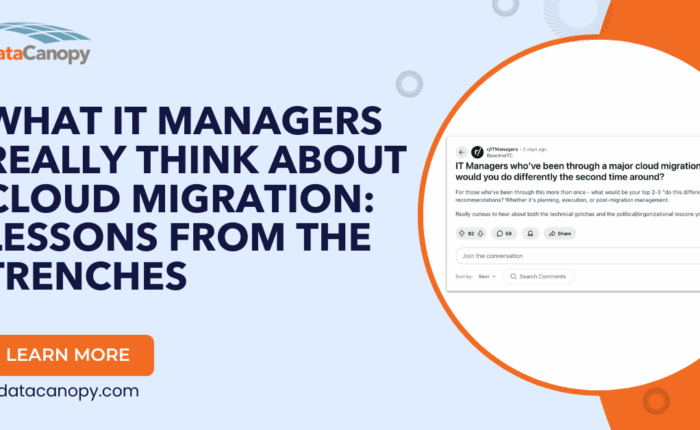 In recent years, the cloud was seen as the answer to everything. Need to reduce costs? Move to the cloud. Want to improve efficiency? Move to the cloud. Want to consolidate? Again, the cloud. There are times, though when the cloud is not the best option and those times aren’t the same for every company. In today’s business, IT departments must adopt a make-sense approach to where the cloud works best for their particular business needs. On premise or third-party data centers can be very important elements of a combined solution. What follows is one of many similar scenarios I’ve seen in my time working with companies looking to solve their data hosting challenges.
In recent years, the cloud was seen as the answer to everything. Need to reduce costs? Move to the cloud. Want to improve efficiency? Move to the cloud. Want to consolidate? Again, the cloud. There are times, though when the cloud is not the best option and those times aren’t the same for every company. In today’s business, IT departments must adopt a make-sense approach to where the cloud works best for their particular business needs. On premise or third-party data centers can be very important elements of a combined solution. What follows is one of many similar scenarios I’ve seen in my time working with companies looking to solve their data hosting challenges.
Healthcare, Storage, and the Cloud
A customer in the healthcare industry came to me initially to build out a private cloud. They had decided against the public cloud due to regulatory concerns, but thought a private cloud would help them to save money while keeping information safe. Typically, this works out great, but this particular client had a very large SQL database in its environment, which are notorious power and memory hogs. When we evaluated the requirements for a private cloud for this server, storage was prohibitively expensive at about $10,000 per month.
A Hybrid Cloud Solution
The solution to this dilemma was to create a hybrid cloud environment for the healthcare provider. The private cloud was created for all but the SQL server, which was collocated in a Tier III data center with HIPAA certification. The hybrid cloud solution allowed my client to take advantage of all that the cloud has to offer: availability, reduction of CapEx, and consolidation and optimization of their environment, but without the hefty price tag that would have resulted from also virtualizing their SQL database.
Finding the Right Cloud for You
This is a very specific example, but these sorts of details are what helps to drive the decision on how to use the cloud for each company. Very small companies can move everything to the cloud and see the cost savings and flexibility they need to grow. A larger company or one with regulatory concerns might decide to move it’s compute resources to the cloud, but operate with private networking gear to ensure switches and firewalls are protected. As companies grow, the threshold for comfort, storage needs, and desired flexibility all need to be taken into consideration when considering how to incorporate the cloud into your total IT strategy. The cloud is not all or nothing, it’s merely another tool to creating the optimal IT environment for your business needs.
Have questions about how a hybrid cloud solution can help your data needs? Contact us today to speak with one of our experts to architect your hybrid IT environment.



